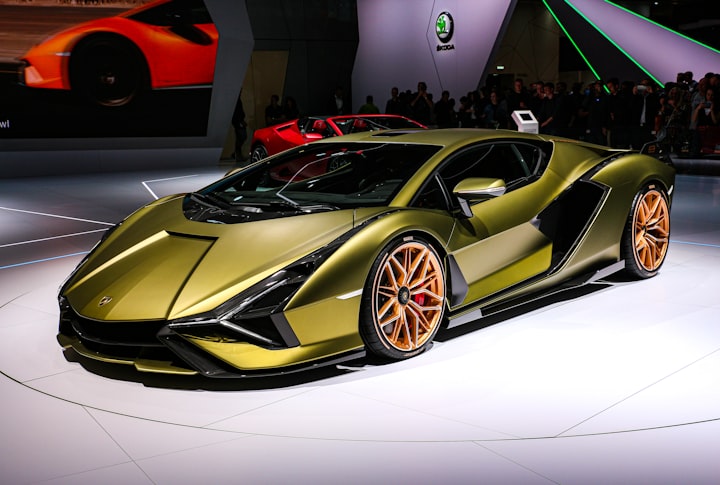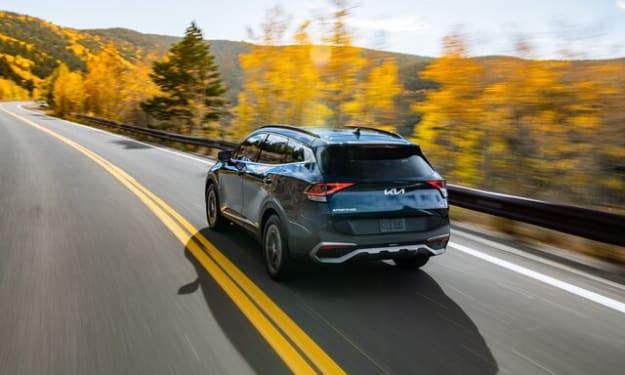
The car is an iconic invention that has revolutionized transportation and shaped the modern world. From its humble beginnings as a crude steam-powered vehicle to the sleek and advanced machines we see on the roads today, cars have become an integral part of our lives. In this article, we will explore the history, impact, and future of the car.
The history of the car dates back to the late 19th century when Karl Benz built the first gasoline-powered automobile in 1885. This invention paved the way for the development of automobiles as we know them today. Over the years, numerous advancements and innovations took place, leading to the mass production and accessibility of cars to the general public.
The impact of the car on society and the economy cannot be overstated. Cars have revolutionized personal mobility, allowing people to travel longer distances in shorter time frames. They have expanded our horizons, enabling us to explore new places and connect with distant friends and family. The car industry has also been a major source of employment and economic growth, with millions of jobs created worldwide.
Moreover, cars have influenced urban planning and infrastructure development. Cities have been designed around the needs of cars, with the creation of extensive road networks, highways, and parking facilities. However, this dependence on cars has also led to problems such as traffic congestion, air pollution, and a decline in public transportation systems. As a result, there has been a growing focus on developing sustainable and eco-friendly alternatives, such as electric cars and mass transit.
In recent years, electric cars have gained significant attention due to their potential to reduce greenhouse gas emissions and reliance on fossil fuels. Advancements in battery technology and charging infrastructure have made electric vehicles more practical and accessible to a wider audience. Governments and automakers worldwide have invested heavily in the development of electric cars, aiming to transition to a more sustainable transportation system.
The future of cars holds even more promise with the rise of autonomous vehicles. Self-driving cars have the potential to revolutionize the way we travel, making transportation safer, more efficient, and convenient. With advanced sensors, artificial intelligence, and connectivity, autonomous cars can navigate roads, interact with other vehicles, and provide mobility services. This technology also has the potential to improve road safety by reducing human error, the leading cause of accidents.
Furthermore, the car industry is embracing other technological advancements such as connectivity and smart features. Modern cars come equipped with various sensors, cameras, and connectivity options, allowing for seamless integration with smartphones and other devices. They offer features like voice recognition, GPS navigation, and advanced driver-assistance systems, making driving more comfortable and enjoyable.
However, along with the advancements, there are also challenges that need to be addressed. The transition to electric cars requires a robust charging infrastructure and sustainable energy sources to support widespread adoption. Additionally, the development of autonomous vehicles raises concerns about safety, liability, and the impact on jobs in the transportation sector.
In conclusion, the car has come a long way since its inception and continues to evolve rapidly. It has shaped our society, transformed our cities, and provided us with unprecedented mobility. As we move towards a more sustainable and connected future, the car industry will continue to innovate and adapt to meet the changing needs of society. Whether it's electric cars, autonomous vehicles, or other technological advancements, the car remains an integral part of our lives, driving us into a new era of transportation.
Additionally, the car has had a significant cultural impact. It has become a symbol of freedom, independence, and status. Owning a car is often seen as a rite of passage, representing personal achievement and success. From road trips to family vacations, cars have facilitated memorable experiences and created lasting memories for countless individuals and families.
The automotive industry has also fostered a sense of community and passion among enthusiasts. Car clubs, rallies, and racing events bring together people who share a common love for automobiles. These gatherings provide opportunities to showcase custom-built cars, appreciate classic models, and exchange knowledge and expertise.
Furthermore, the car has played a vital role in shaping popular culture. It has been featured prominently in movies, music, and literature, becoming an iconic symbol of various eras. Films like "Back to the Future" and "The Fast and the Furious" have captured the imagination of audiences worldwide, showcasing the thrill and excitement associated with cars. Automobile brands have become synonymous with style and luxury, evoking aspirations and desires.
However, it is important to recognize the environmental impact of cars. The combustion of fossil fuels in traditional internal combustion engines contributes to air pollution and climate change. As awareness of these issues grows, there is a pressing need for the development and adoption of cleaner and more sustainable alternatives. Electric vehicles, powered by renewable energy sources, offer a greener solution, but challenges such as battery production and recycling need to be addressed to minimize their ecological footprint.
Moreover, the car industry is not without its controversies. Safety concerns, including accidents and fatalities, have been a longstanding issue. Efforts have been made to improve vehicle safety standards, such as the implementation of seat belts, airbags, and advanced driver-assistance systems. However, there is still work to be done to ensure the highest level of safety for all road users.
The car industry is also subject to economic fluctuations and market demands. Global economic crises, changing consumer preferences, and geopolitical factors can significantly impact the sales and production of cars. Automakers must adapt to these challenges, invest in research and development, and embrace innovation to remain competitive in the ever-evolving market.
Looking ahead, the future of cars holds immense potential for further advancements and transformations. The integration of artificial intelligence, machine learning, and big data analytics can enhance the driving experience, improve safety, and optimize traffic flow. Moreover, the concept of shared mobility and ride-hailing services has gained traction, enabling people to access transportation without owning a car. This shift towards mobility-as-a-service could reshape urban landscapes and reduce the number of vehicles on the roads.
In conclusion, the car has had a profound impact on our society, economy, and culture. It has revolutionized transportation, provided personal mobility, and shaped the way we live and interact. While challenges related to environmental sustainability, safety, and market dynamics persist, the car industry continues to innovate and adapt. As we navigate the future of transportation, it is crucial to prioritize sustainability, safety, and accessibility, ensuring that the benefits of cars are enjoyed by all while minimizing their drawbacks. The car remains an iconic invention that has left an indelible mark on human history, and its journey of transformation is far from over.
About the Creator
Danny
I post random stories






Comments
Danny is not accepting comments at the moment
Want to show your support? Send them a one-off tip.